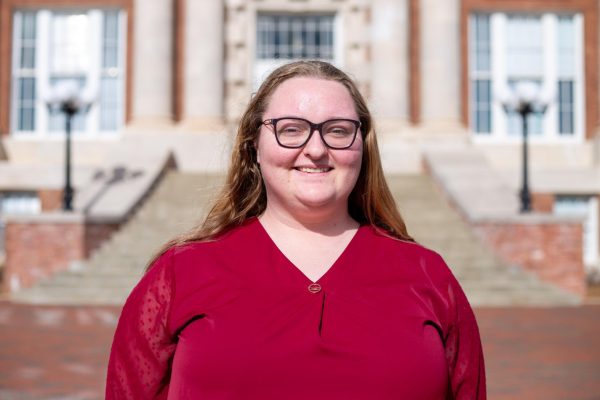As someone who is not financially independent, I feel thoroughly qualified to argue that students at Mississippi State University — and elsewhere, honestly — would benefit as a whole from classes centered around personal finance. On the heels of the recent internet phenomenon known colloquially as the “Chase Bank Glitch,” this need is more dire than ever.
For those who are blissfully unaware, the “Chase Bank Glitch” is a recent sea of boiling hot water that many people nationwide found themselves stewing in. The viral trend started with social media posts, particularly on TikTok, suggesting that there were loopholes to be found for Chase Bank users and their ATMs.
In accordance with the rumors, individuals began writing checks to themselves for inordinate sums of money that they did not have. They deposited the checks via ATMs, which, unlike human tellers, don’t impose holds or delays. This allowed them to withdraw the full check amount even though their accounts lacked sufficient funds.
The adults in the crowd who understand how checks work would tell these people that yes, this is check fraud, which can be a federal crime. Now, people who attempted this scam have had the money pulled from the account, drawing negative balances of up to tens of thousands of dollars and are facing legal ramifications, according to an article by NBC News.
I believe that in this modern age of money being digitized and abstracted, younger generations are struggling to understand the rapidly changing principles of our ever-evolving economy in ways that generations prior have not. Plus, with the addition of social media, false information like the “Chase Bank Glitch” can spread like electrified wildfire, exacerbating the problem. Perhaps a standardized, accessible, formal education opportunity based in personal finance would help.
Hayden Hughes is a freshman majoring in international business. When asked whether he considered himself financially independent, Hughes said “If I had to, I could survive on my own.”
He also shared that while he would consider himself fairly financially competent as a careful consumer, he has never had any formal education on the matter and shares in my sentiment that personal finance classes would benefit both himself and the broader MSU population.
“The only way I have done as well as I have is due to my own worries and research,” Hughes said “Without that, I would be absolutely lost today.”
Another student, Vitor da Silva, is a junior chemical engineering major who does not consider himself financially independent. Despite working full-time, he still relies on a guardian’s help with bills and major financial decisions. Like Hughes, da Silva counts himself as financially competent.
He shared Hughes’ sentiment towards formalized courses.
“I would definitely benefit from a personal finance class,” da Silva said. “A lot of people would benefit from understanding how credit cards and insurance works,” said da Silva.
Looking even further into the student body, Anna Eoff is a graduate student studying taxation. Alongside da Silva, Eoff was very upfront with her present financial dependency.
“I currently only cover gas, groceries, and anything not considered a need,” Eoff said.
When asked how financially competent she feels, Eoff shared that she feels decently competent in most areas, although she finds the idea of investing to be daunting, as it is something she has not experimented with.
While Eoff did take a personal finance class in high school, she stated that none of her business classes taken at MSU so far have yielded information applicable to her personal finances, and she would like to have had the option, particularly if the class promised to cover something like investing.
“Everyone should have access to personal finance classes,” Eoff said. “I think that would be a much more valuable elective than some of the ones I had to take as a freshman.”
Finance and the economy can be frightening. As I wrote before, I am very dependent on my parents in that realm, and I spend a lot of time worrying about the day when I will have to stand alone in that aspect of my life. While my parents have tried to educate me — and I have tried to educate myself — I believe that a formal class focused on personal finances would help relieve my fears.
I am a senior now, so I am afraid that such a course could not come to fruition quickly enough for my tenure here. But, I stand firm in saying that providing a structured way at to learn about finance at MSU might just be enough to prevent another “Chase Bank Glitch” from happening in Starkville.








Alan Windham • Sep 23, 2024 at 10:48 am
Great idea re class on personal finance. Sounds like a course in ethics is needed too. Those persons participating in the ‘Chase Bank Glitch’ knew they were committing check fraud. A Windham MSU ’79